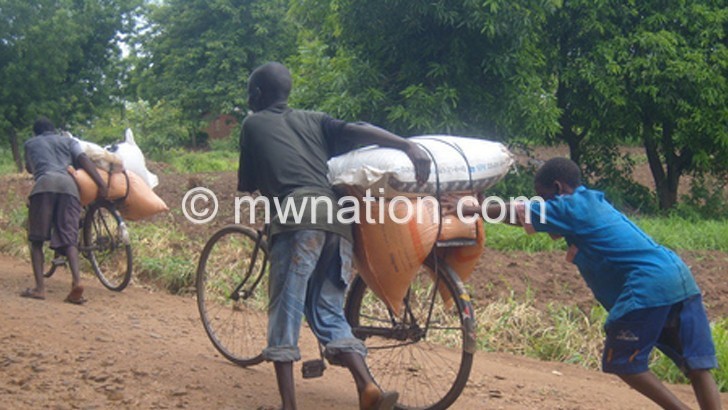Experts punch holes in agro sector budget
A 2020/21 agriculture sector budget analysis has exposed flaws in the allocation of money to various programmes, urging the Ministry of Agriculture to reconsider re-allocation of funds before the 2020/21 National Budget passes.
The analysis, among others, shows that the agriculture sector budget allocation has a huge chunk to low-impact programmes such as the Affordable Input Programme (AIP), the successor of Farm Inputs Subsidy Programme (Fisp).

In contrast, the analysis jointly commissioned by the National Association of Smallholder Farmers in Malawi (Nasfam) and ActionAid Malawi, indicates that high-impact programmes within the agriculture sector such as livestock, research and extension services, have been ‘grossly’ underfunded.
It has also decried the country’s continued failure to attain the targeted six percent agriculture gross domestic product (GDP) growth for the past six years, attributing such a failure to uneven allocation of funds across various programmes and intervention areas.
The 2020/21 National Budget presented in Parliament in Lilongwe on September 11 2020 by Minister of Finance Felix Mlusu, ranks agriculture, water development and climate change as the second priority sector for the past four years with an allocation of K354.8 billion, up by 45 percent from the previous financial plan.
However, mainstay agriculture has been allocated K245.7 billion, which is 11 percent of the national budget and is up by 32 percent from the K167 billion allocated in 2019/20 budget.
The increase is largely on account of huge rise of about 78 percent from K35.5 billion to K160.2 billion in AIP.
Such a sector budget represents 11 percent of the national budget and is slightly above the Comprehensive Africa Agriculture Development Programme (Caadp) minimum recommended 10 percent spending towards the agriculture sector.
Reads the analysis in part: “Despite continuous commitment in financing of the sector as per Caadp target, the sector has over the period in question, except in 2017, failed to attain the six percent agricultural GDP growth target.
“Probably this could be a result of structural bias in the sector’s budget and misallocation of resources to less-impact programmes.”
The analysis also observes that agriculture sector operations budget is estimated at K176 billion, or 72 percent of total agriculture budget, an increase from K52 billion allocated in 2019/20 fiscal year.
The increase, according to the analysis, is due to a huge jump in AIP allocations, which has claimed 91 percent of other recurrent transactions (ORT) budget and continues to dominate the sector’s ORT budget “thereby choking performance of other programmes within the sector”.
One of the authors of the analysis, Godwin Nyirongo, said the agriculture sector now has four key programmes, namely agriculture productivity and risk management; livestock production, sustainable rural development and management and administration.
In an interview, he said agriculture productivity and risk management has for the past three years enjoyed a lion’s share of the sector’s budget, claiming about 76 percent, up from 33 percent followed by sustainable rural development, which claims 21 percent up from 18 percent.
Nyirongo said livestock production continues to get the least share, now at one percent down from 2.2 percent.
“This sub-sector is likely to decline by 0.3 percent in 2020 according to 2020 Annual Economic Report and this is partly due to structural biased allocations towards a few or less impact areas within the sector,” he said
In an interview on Tuesday, Nasfam head of policy and communication Beatrice Makwenda said a single programme within a ministry should not get more than 80 percent and not less than five percent of the overall allocation.
On his part, ActionAid Malawi social accountability project manager Wales Chigwenembe said together with Nasfam, their interest is on enhancing oversight capacity for rights-based public resources management.
Agriculture expert Tamani Nkhono-Mvula expressed worry that more money within the agriculture sector continues to be channelled toward rain-fed production system, stressing that such money goes to waste each time the country is hit by unforeseen circumstances such as drought.
He said: “My suggestion is that there should be a balance between rain-fed agriculture spending and an allocation for irrigated farming development. In most cases, public expenditure on irrigation is very low. I would also want to see public expenditure on research and development increased.
“We are living in the era of climate change and its related impacts are costing us a lot in the sector. We also need more resources for the extension department.”
Minister of Agriculture Lobin Lowe could not be reached to react to the observations and suggestions, but he defended AIP allocation in Parliament recently, saying the programme is vital in restoring food security at household level.





